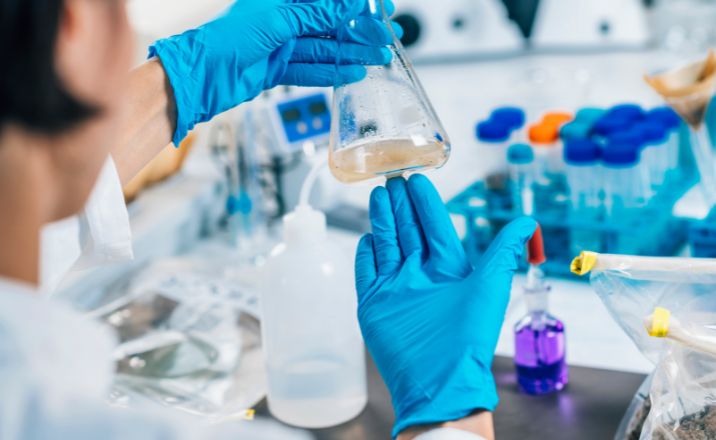Biodegradability testing is essential in the contemporary marketplace, where sustainability is a driving force for innovation, as it serves to bridge the divide between laboratory research and real-world product approval. Companies across industries are under increasing pressure from regulators, retailers, and consumers to prove that their products are not only effective but also environmentally responsible. Biodegradability testing provides the evidence needed to ensure that products meet environmental standards and can gain market acceptance.
Why Biodegradability Testing Matters?
As global awareness of climate change, plastic pollution, and waste management challenges grows, the need for eco-friendly solutions has become urgent. Governments are implementing more stringent regulations to enforce sustainability practices, and consumers are increasingly demanding products that reduce environmental impact. In this context, biodegradability testing acts as both a scientific and compliance tool.
By measuring how quickly and completely a product breaks down into natural elements under defined conditions, biodegradability tests give manufacturers concrete data on the environmental impact of their materials. This ensures that claims like “biodegradable” is backed by measurable proof, protecting both the consumer and the manufacturer from misleading information.
The Science Behind Biodegradability Testing
At its core, biodegradability testing examines the ability of microorganisms—such as bacteria and fungi—to break down a material into water, carbon dioxide, methane, or biomass. Different methods and standards exist depending on the product type, intended use, and disposal environment. For example, packaging materials may be tested under conditions simulating composting, soil burial, or aquatic environments.
The testing process typically involves exposing a sample material to controlled environments and monitoring the breakdown process over time. Factors such as temperature, oxygen availability, and moisture levels are carefully regulated to replicate real-world conditions. The results are then compared against established benchmarks, such as ASTM, ISO, or OECD standards, to determine whether the product qualifies as biodegradable.
This scientific process provides an objective basis for decision-making, which is vital when moving from lab innovation to market-ready products.
Regulatory Compliance And Market Approval
One of the most important roles of biodegradability testing is to satisfy regulatory requirements. Many regions, including the European Union and the United States, have strict guidelines on environmental claims and labeling. In order to verify the claims of “biodegradable” or “compostable,” products must undertake established testing protocols.
Without validated biodegradability results, companies risk fines, product recalls, or loss of consumer trust. For instance, some markets may require proof that a material disintegrates within a specific time frame in industrial composting facilities. Others may demand evidence that the breakdown does not release harmful residues into the environment. Passing these tests ensures smoother approval processes and accelerates the path to commercialization.
In addition to meeting government requirements, biodegradability testing helps companies gain acceptance from major retailers and distributors. Many large retail chains are adopting sustainability policies that only allow certified eco-friendly products on their shelves. Having reliable biodegradability test results makes it easier for manufacturers to secure contracts and expand their market reach.
Building Consumer Confidence
Beyond compliance, biodegradability testing strengthens consumer trust. Shoppers today are increasingly skeptical of greenwashing, where companies exaggerate or misrepresent the sustainability of their products. Independent biodegradability test results provide transparency and credibility, helping brands differentiate themselves in competitive markets.
When consumers see that a product has been scientifically tested and verified for environmental friendliness, they are more likely to make a purchase and remain loyal to that brand. Furthermore, this not only increases sales but also establishes the organization as a responsible sustainability leader.
Driving Innovation In Sustainable Materials
Another key role of biodegradability testing is its influence on research and development. By evaluating how new materials perform under biodegradation tests, scientists and engineers can refine formulations and innovate more effective, sustainable products. Testing highlights potential weaknesses, such as slow degradation rates or incomplete breakdown, and allows teams to improve before launching products into the market.
For example, in industries like packaging, agriculture, and consumer goods, companies are experimenting with plant-based polymers, bio-plastics, and novel composites. Biodegradability testing acts as a feedback loop, ensuring that new materials not only meet functional requirements but also align with sustainability goals.
The Path From Lab To Market
The journey from lab to market for sustainable products is not straightforward. Innovation begins in the laboratory, where researchers develop alternative materials with lower environmental footprints. These materials are then subjected to rigorous biodegradability testing to confirm their eco-friendly claims.
Only when they pass recognized standards can companies confidently present them to regulatory bodies, retailers, and consumers. This testing stage is therefore the bridge between scientific discovery and market approval. It ensures that products are not only innovative but also trustworthy and compliant, reducing the risk of setbacks during commercialization.
Conclusion
Biodegradability testing is far more than a scientific exercise; it is a critical step in bringing sustainable products from the laboratory into the hands of consumers. It provides measurable proof of eco-friendliness, supports regulatory compliance, fosters consumer trust, and fuels ongoing innovation. As industries worldwide continue to move toward greener practices, the role of biodegradability testing in product approval will only grow more significant. Companies that invest in thorough testing are not just meeting today’s standards—they are shaping a more sustainable marketplace for the future.
